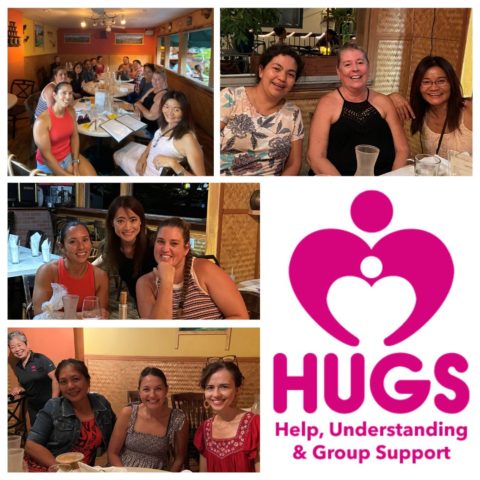

Tiffany Aukai joined PMK in May 2022 as an associate attorney specializing in the areas of community association law, construction litigation, and commercial litigation on Oahu and the neighbor islands. A graduate of the University of Hawaii William S. Richardson School of Law, she previously worked as a Deputy Prosecuting Attorney in the City and County of Honolulu and clerked for the Honorable Judge Matthew J. Viola of the First Circuit Court of Hawaii.
Tiffany pursued a career in law because of her passion to help others. Her father, who is a retired police captain on Maui, served as a role model.
“He really inspired my drive to work hard and to help the most vulnerable members of our community and his influence is mainly why I am an attorney today,” she said.
Tiffany became interested in real estate law in law school and continually finds it challenging and exciting, especially local issues such as affordable housing, contract issues, or what can wrong during the construction process.
“I had great professors who sparked an interest in the subject, and in Hawaii in particular, the real estate sector is constantly developing,” she said. “The more development we have, the more opportunity we have to solve problems.”
Currently, she is working on an article for the newsletter for the Hawaii Chapter of the Community Association Institutes about service animals and the difference between reasonable accommodations and reasonable modifications under the Federal Housing Act.
In the future, Tiffany hopes to tackle constitutional issues in real property law, such as governmental involvement in zoning issues.
Tiffany grew up on Maui and now lives in Kaneohe. In her free time, she enjoys practicing yoga and spending time with her two-year-old daughter and her husband, who is also an attorney.


Jose Vega joined PMK in February 2022 as an associate attorney practicing community association law on Oahu and the neighbor islands. While attending the University of Hawaii William S. Richardson School of Law, he served with the Hawaiian Innocence Project and the Immigration Clinic, both of which are nonprofit organizations that help promote justice for minority groups. After graduating and before joining PMK, he worked in the areas of insurance defense and criminal law.
Jose’s family encouraged him to pursue a career in law, in part to follow in the footsteps of some of his maternal relatives who practiced law in Mexico.
Jose said he has benefitted from and appreciates the learning opportunities that practicing real estate law has afforded him.
“I enjoy challenges and I find that I am learning every day as I practice,” Jose said.
The subject of one of his favorite classes in law school was secure transactions.
“This type of practice works with secure transactions and adds a layer of complexity that I enjoy,” he said.
Recently, Jose has studied reasonable accommodations and how to determine when homeowners’ associations must provide them, which can be especially complex when residents have competing interests.
“There are no hard and fast rules,” he said. “It is very case-by-case. “
Born in Texas and raised in Georgia, Jose now lives in Makiki. In his free time, he enjoys free diving, painting, and rock climbing.


Going through a divorce is a monumental life event. Divorces can be both expensive and stressful. You should expect your divorce attorney to be with you through every step of the legal process and maybe even provide some handholding along the way. You should demand both compassion and professionalism.
Because your lawyer will play such a crucial role in the process, you’ll want to be very deliberate when choosing who you’ll work with. Here are some things to think about and some specific actions to take before settling on a divorce attorney:
- What type of divorces have they handled? Every divorce is different, but you’ll want to know that your attorney has handled cases that are similar to yours.
- Talk to other people you know and trust who have gone through divorces. Ask them if they recommend a specific law office or attorney.
- Identify at least three lawyers to interview. Prepare your questions ahead of time and carefully evaluate their answers to determine if they will meet your needs and mesh with your personality.
- Does your prospective divorce attorney listen? If they are constantly distracted by their phone or being disturbed by others knocking on their office door, that is a sign that they may not give you the undivided attention that you deserve.
- How do they charge? If there’s an hourly rate, what is it? Some attorneys provide fixed-rate fees for certain types of divorces or reduced rates for limited services.
- Do you feel comfortable talking to them? You’re likely to share some very personal information with them, so you’ll want to trust them and feel at ease conversing with them.
PKK Senior Associate Seth Harris can provide you with a compassionate ear and specialized expertise to assist you with your divorce needs. Contact him today to learn what he can do for you.


Navigating a divorce can be exceedingly challenging. When you add questions such as whether to seek professional legal advice, it can be downright confusing! Read on to learn about DIY divorces and when you should seek an attorney’s assistance.
What is a DIY divorce
A DIY divorce is an alternative to hiring a divorce lawyer to legally dissolve a marriage. They are free except for the court filing fee if both parties agree to the terms and at least one spouse says that the marriage is irretrievably broken. In Hawaii, most divorces are completed without the help of a legal counselor. Here are the steps of a DIY divorce:
- Obtain the necessary documents from the family court website (which may vary for different circuits).
- Fill out the necessary court forms including financial statements and prepare a divorce decree that states what you and your spouse have agreed to.
- If you have children, fill out financial statements, parenting and child support plans, and a partnering and child support guidelines worksheet.
- Submit the proposed divorce decree and copies of financial documents to the family court in person or by mail.
- The defendant must fill out and submit an appearance waiver, which means they are acknowledging they were properly served with the Complaint for Divorce which means they agree to the terms of the divorce decree and that they are waiving their right to a court appearance.
- The plaintiff must submit a document acknowledging they properly served the defendant and confirming the facts that give the court the authority to grant the divorce.
- The court assembles the documents and gives them to a judge until they can review them to ensure the financial statements are correct.
- The divorce is granted, and the court returns the documents to the spouse who filed them to be sent to the other side.
Some of the pros of a DIY divorce are:
- Less expensive.
- Less time-consuming, as you don’t have to meet with an attorney or appear in family court.
Here are some of the cons of a DIY divorce:
- You could make a procedural error which can result in delays or additional costs.
- It can be frustrating to fill out the relevant documents without the help of an attorney.
- You might misunderstand the law on any aspect of the process.
- You are liable if you make a mistake.
- You could make a procedural error, such as not receiving a copy of the divorce documents, which can result in other headaches.
When you hire a divorce attorney, you get a wealth of expertise that can make the process much smoother. Here are some advantages:
- You receive objective advice regarding your rights and obligations and advice from a qualified expert who can ensure you haven’t overlooked any details.
- An attorney can ensure you don’t agree to things you shouldn’t because you don’t have the proper knowledge or expertise.
- Your lawyer can file the documents on your behalf, so you can be confident in the quality of the work.
- They can make sure you are aware of all your rights, which is especially crucial if you don’t control your finances or have less money.
- There are specific situations in which it is especially advantageous to hire an attorney, such as if you have been married for decades and have considerable financial assets, or if you are in a more complicated custody situation, such as if one parent wants to relocate to the mainland.
If you elect to undertake a DIY divorce, consider scheduling a consultation with an attorney so you have a basic understanding of rules for custody, alimony, property division, child support, and other administrative requirements. Or, take advantage of free legal resources, such as the Kapolei Access to Justice Room or
Volunteer Legal Services of Hawaiʻi.
Seth Harris, a senior associate at the PMK family law division, is available to assist you with divorce, and any other family law needs. For more information, go to www.hawaiilegal.com/practice-areas/family-law-2/.


PMK partnered with HUGS to sponsor a Mom’s Night Out on September 1st. HUGS is an organization that helps strengthen Hawaii’s families and improve their quality of life as they face the emotional and financial hardships of caring for a seriously ill child.
The moms were treated to a meal at Himalayan Kitchen in Kaimuki and enjoyed a night of talking story and sharing laughs.
To learn more about HUGS, visit https://www.hugshawaii.org/

